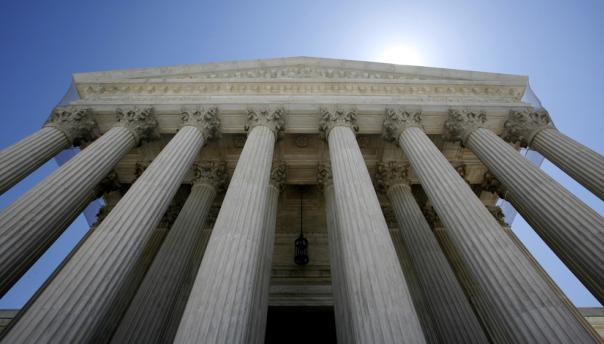Alabama’s Death Sentence May Not Be Consitutional
Roughly 48 hours after the Ohio legislature took steps to protect the right to life, the state of Alabama took the life of 45 year old Ronald Bert Smith Jr.. Smith was convicted for the murder of killing Casey Wilson, a convenience-store clerk, during a robbery in 1994 and the jury sentenced him to life in prison without the possibility of parole. Two months later the judge overrode the jury’s 7-5 decision and sentenced Smith to death, citing the “particularly heinous” nature of the crime, pointing to evidence that indicated Smith killed Wilson “execution style.”
It is important to note, Alabama is the only state which allows a judge to override a jury’s recommended sentence. However, in January the Supreme Court ruled in Hurst v. Florida, only a jury has the constitutional authority to find a murder so heinous that its perpetrator deserves to be executed. As a result, Smith’s lawyers argued the judge who originally wrote the sentence did not follow the recommendation of the jury who convicted Smith of capital murder in 1995.
Smith’s lawyers petitioned the Supreme Court for a stay of execution under Hurst v. Florida, and while two temporary stays were granted. Ultimately the Supremes were split in the ruling, 4-4 and denied Smith’s appeal.
While the death penalty is always a hot button issue for people, the question of constitutionality in Smith’s case is what needs to be examined. A jury of peers handed Smith a life sentence without parole and two months later, the judge changed the ruling to a death sentence.
In the Supreme Court ruling in Hurst v. Florida, the Supremes found Florida’s system to impose the death penalty was unconstitutional on the grounds it gives power to judges that is rightfully reserved for juries. The difference in Smith’s case versus Hust’s is Smith’s jury sentenced him to life without parole while Hurst’s jury in recommended death 7 to 5.
The jury in Hurst v. Florida was informed their ruling was merely a recommendation and not binding. The judge also had the ability to consider evidence the jury did not. Regarding Smith’s case, one could argue the judge followed the similar procedure. The precedent set in terms of a sentencing someone to death had to be based on a jury’s verdict, not a judge’s fact-finding. According to Justice Sonia Sotomayor, “Florida’s sentencing scheme, which required the judge alone to find the existence of an aggravating circumstance, is therefore unconstitutional.”
The argument over Smith’s death sentence is clearly unconstitutional in terms of Hurst v. Florida, but when it comes to the Cotton State, the Alabama Supreme Court disagrees and has found Alabama’s capital sentencing scheme is consistent with the Sixth Amendment.
The Supreme Court had the chance to step in and clarify why Alabama’s death penalty directly conflicts the decision the Supremes handed down eleven months earlier and defend their position in the jury’s role in deciding who lives and who dies.
A question of constitutionality over Smith’s death sentence for some is as clear as night and day. Unfortunately, for Smith those who believe the judge overstepped his bounds were not the majority and the Justices on the Supreme Court did not agree to halt his execution. As a result, on Thursday night, Ronald Bert Smith Jr. was put to death by lethal injection. During 13 minutes of the execution, Smith struggled to breathe and heaved and coughed, and 34 minutes later Smith was pronounced dead.
Capitol punishment at its core is a flawed system and often times is carried out in a disproportionate number to poor people of color, and in a state where judges are elected the possibility for favors and backdoor deals during an election year to keep a seat on the bench is all too likely. Organizations such as the Equal Justice Initiative have reported an increase in judicial overrides during election years, providing a soapbox for judges’ to stump on their record of being tough on crime.
For some justice was served on Thursday night in the form of lethal injection to Smith. For others, the 13 minutes of execution and the 34 minutes it took Smith to die is a reminder of the flawed system in which execution is carried out. The best anyone can hope for is another way to clear up the inconsistencies and flawed nature of capital punishment. Be it eradicating it for the justice system all together or ensuring verdicts handed down by jurys are in fact upheld by the judge at all costs.

